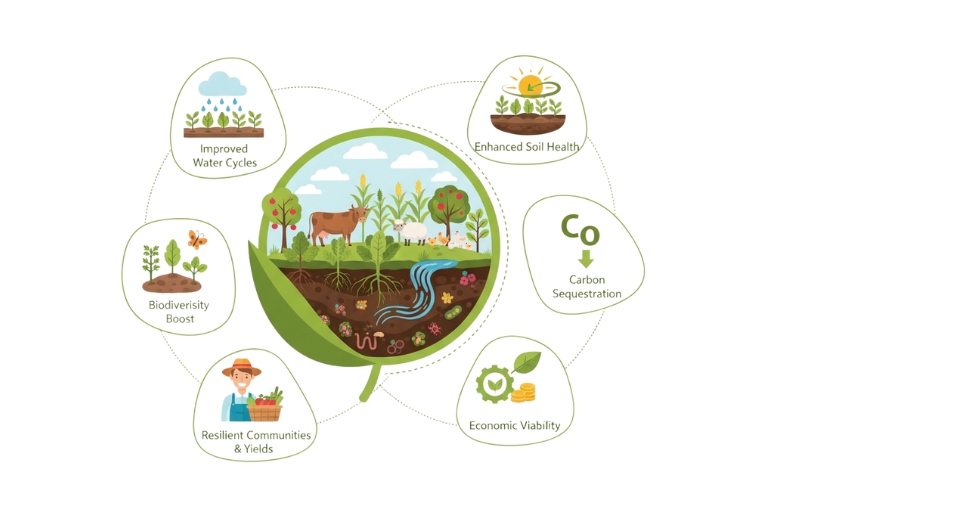
Nov 12, 2025

The recent report released about the global regenerative agriculture market from Metastat Insight explores in depth a farming approach that is surely transforming contemporary agricultural systems. The report goes beyond the conventional observation of a market to a sector where ecological restoration, soil enrichment, and sustainable crop cycles meet economic development. The global regenerative agriculture market valued at approximately USD 15.1 Billion in 2025, growing at a CAGR of around 18.7% through 2032, with potential to exceed USD 50.3 Billion. This indicates increasing recognition that regenerative farming is one of the feasible solutions for long-term food security, soil vitality, and environmental balance.
At its middle, regenerative agriculture emphasizes the rebuilding of soil organic matter, recovery of degraded lands, and improvement of biodiversity via techniques that work in harmony with nature. This is unlike conventional farming, which depletes the fertility of the soil; the point of interest here is enhancing the land's natural capability to resume itself. Crop rotation, decreased or no-until farming, composting, and integration of cattle into crop structures cultivate fresh approaches to repair ecosystems even as retaining yields. As these methods are becoming increasingly more validated through scientists and agronomists alike, so too is their adoption throughout continents, from smallholder farms in developing regions to big-scale operations in industrialized economies.
This transition is no longer simply adopting new approaches to farming but approximately remaking what we understand as agricultural prices. Businesses, policymakers, and environmental companies have been piecing together frameworks that value land stewardship and sequestering carbon. Such alternate has drawn funding into monitoring technology for soil fitness, statistics-pushed crop management gear, and network-pushed farming tasks. Sector evolution proves that sustainable agriculture isn't a lofty intention anymore but an implementable and measurable one with a growing environment of innovators, researchers, and producers.
Perhaps the maximum hanging function of this agricultural transition is how it aligns with international ambitions towards sustainability. In a world in which focus is developing the interlinking among climate, food systems, and natural sources, regenerative agriculture is a logical pathway to ecological equilibrium and resiliency.
Fundamentally, the global regenerative agriculture market is more than simply an enterprise; it's miles a country of mind-a destiny in which agriculture offers extra than it takes. This transformation is aptly captured by the research file from Metastat Insight, which affords a deep view into wherein technology and sustainability meet financial opportunity in this progressive quarter. It depicts a panorama that maintains to mature through collaboration, innovation, and attention, reaffirming that the movement toward regenerative farming isn't just about a trend, but an essential redefinition of the way humanity interacts with the land.
Drop us an email at:
Call us on:
+1 214 613 5758
+91 73850 57479